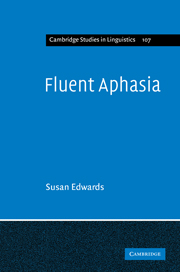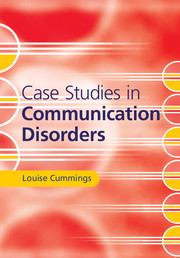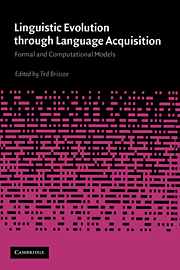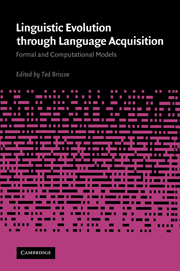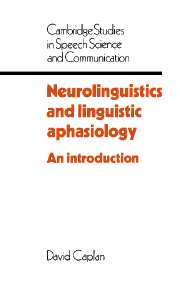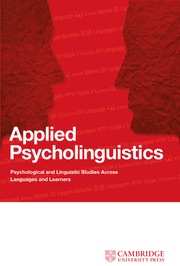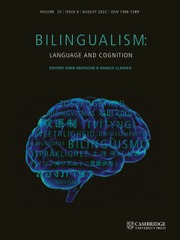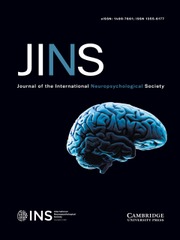Fluent Aphasia
Fluent aphasia is a language disorder that follows brain damage, causing difficulty in finding the correct words and structuring sentences. Speakers also experience problems in understanding language, severely impairing their ability to communicate. In this informative study Susan Edwards provides a detailed description of fluent aphasia, by drawing widely on research data, and by comparing fluent aphasia with other types of aphasia as well as with normal language. She discusses evidence that the condition affects access to underlying grammatical rules as well as to the lexicon, and explores the relationship between language and the brain, the controversy over aphasia syndromes, the assessment of aphasia via standardized tests, and the analysis of continuous speech data. Extensive examples of aphasic speech are given, and the progress of one fluent aphasic speaker is discussed in detail. Written by an internationally renowned expert, this book will be invaluable to linguists and practitioners alike.
- Combines clinical insights with theoretical debates
- Looks at research findings from a variety of different methodologies
- Provides many illustrations of aphasic speech
Reviews & endorsements
' … provides a good portrayal of Wernicke's aphasia … can be recommended to readers from many different fields who are interested in gaining insight into aphasia, its assessment, and its underlying causes.' Linguistics
Product details
April 2009Paperback
9780521107495
244 pages
229 × 152 × 14 mm
0.36kg
Available
Table of Contents
- 1. Fluent aphasia: identification and classic descriptions
- 2. Descriptions of fluent aphasia
- 3. Assessment and fluent aphasia
- 4. Connected fluent aphasic speech
- 5. Non-fluent and fluent aphasic speech
- 6. Comprehension and processing problems in fluent aphasia
- 7. The manifestation of fluent aphasia in one speaker
- 8. Some concluding thoughts.

